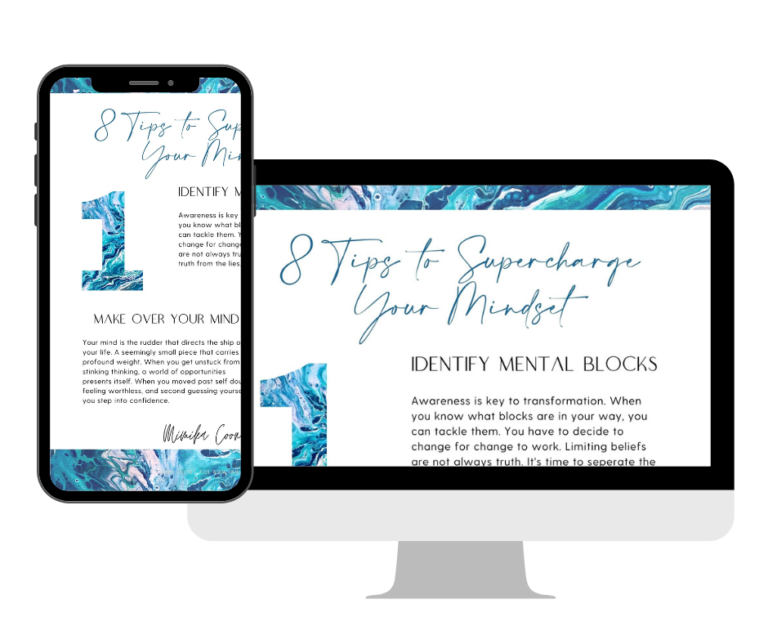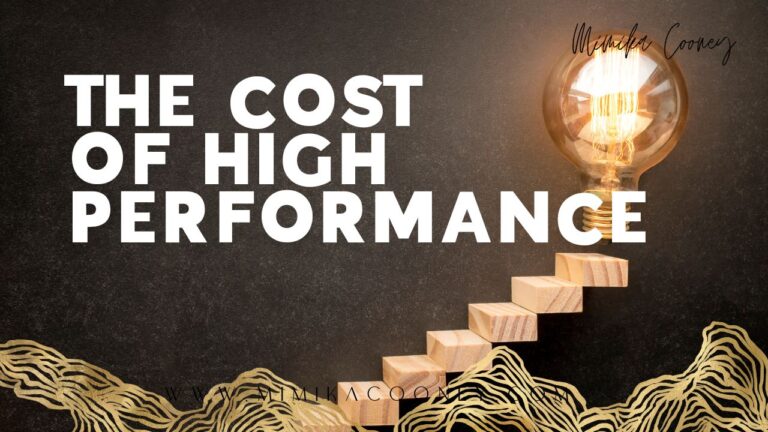Entrepreneurs create businesses out of nothing. So often we wrap up our identities in our business and judge our levels of peak performance.
I was so stuck on the concept for years that if my business was failing, I was suffering burnout, I felt like I was a failure,and I neglected my well-being and mental health.
I felt that something was wrong with me. I felt like if I wasn’t getting enough clients, or if I wasn’t hitting the revenue goals, something was wrong with me personally.
Our physical well-being suffers, and it becomes impossible to have sustainable success in achieving balance.
A lot of that comes from childhood trauma or experiences that our brain latches on as “truth”, and sets a precedence for any future experiences. It wires us to think any failure is a personal criticism of our self concept.
This turns us into performance machines where we judge our success on tasks and results. Left unchecked it can lead to burnout and breakdown because we are not machines. Striving for high performance can come at a cost.
We take that junk in our trunk from the past and we load up our car. The problem is it will slow down your progress, until you come to a screaming halt.
We spend years trying all the “things” because everyone else says we need to be doing all the things. However, if you’re not congruent with your identity, and who God made you to be, you will feel inauthentic.
So my approach is I don’t believe in quick fixes. There is no instant quick button because growth takes time. If it took you many years to get stuck, it’s gonna take you a hot minute to get out.
The good news is there is a process to getting unstuck and rewiring your brain to function at it’s prime.
If you want to take the process deeper, consider joining my coaching program Unstick Your Mind.
The Cost of High Performance: Balancing Drive with Well-being
Introduction
In the world of business, sports, and daily life, the chase for high performance is relentless. But while achieving peak performance can offer immense rewards, it often comes with hidden costs. This article sheds light on the true price of high performance and how to strike a balance between ambition and personal well-being.
1. The Allure of Peak Performance:
- What is High Performance? It’s about operating at your maximum potential consistently. This could be in the workplace, during athletic events, or even in personal pursuits.
- The Rewards: High performers often experience more opportunities, financial gains, and recognition in their respective fields.
2. The Hidden Costs:
- Physical Toll: Pushing oneself constantly can lead to burnout, chronic fatigue, and even more severe health issues if not managed.
- Mental Strain: The pressure to maintain top-tier performance can result in anxiety, stress, and other mental health challenges.
- Relationship Costs: The time and energy dedicated to maintaining high performance can sometimes come at the expense of personal relationships and quality time with loved ones.
3. Achieving Balance: Tips for Sustainable High Performance:
- Set Clear Boundaries: Know when to work and when to rest. Allocating specific times for breaks can prevent burnout.
- Prioritize Mental Health: Engage in activities that promote relaxation and mental clarity, like meditation, reading, or even a simple walk.
- Physical Well-being is Crucial: Ensure regular exercise, a balanced diet, and adequate sleep to maintain optimal performance levels.
- Seek Support: Talk to mentors, peers, or professionals about the challenges you face. Remember, it’s okay to seek help.
4. Redefining Success:
- Beyond the Metrics: High performance isn’t just about numbers or accolades; it’s about holistic growth, which includes personal well-being.
- Celebrate Small Wins: Don’t just focus on the big goals. Recognize and celebrate the smaller milestones along the way.
Conclusion:
While the pursuit of high performance is admirable, it’s essential to remember that sustainable success is a marathon, not a sprint. By understanding and managing the costs associated with high performance, individuals can achieve their goals without compromising their well-being.




